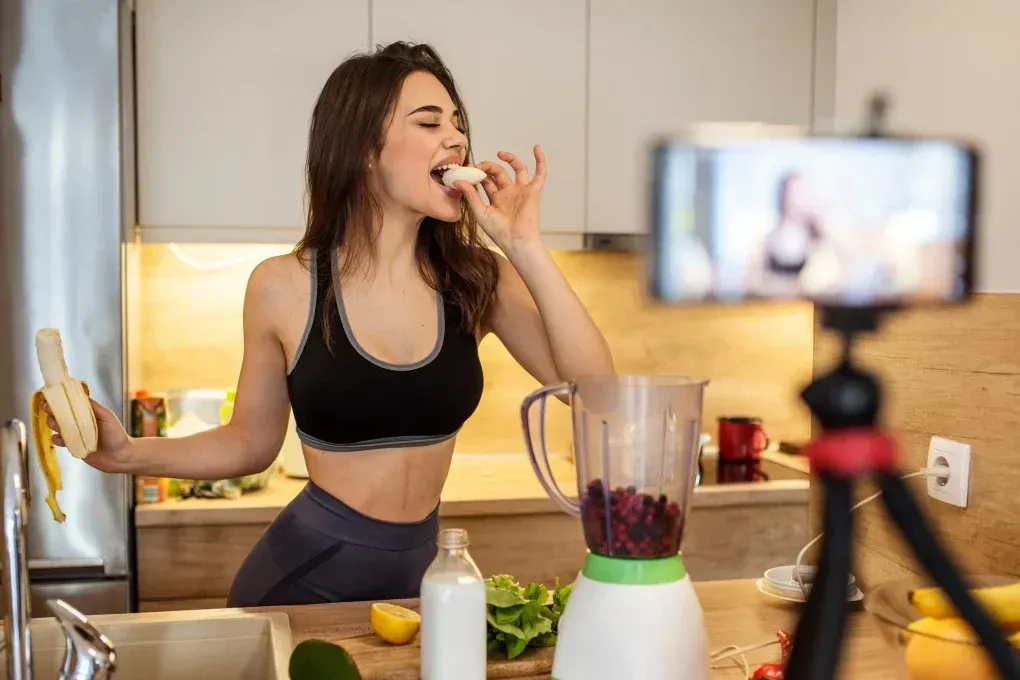
How Social Media Influencers Are Skewing Your Health Beliefs
In today's social media landscape, many health beliefs are shaped by influencers rather than sound science—and it shows. If you've ever found yourself scrolling through your timeline or debating in the comments, you may notice a common trend: people view health choices as either entirely good or utterly bad.
The Problem with Black-and-White Thinking
Let’s look at some examples:
Meat is either a superfood or a heart attack waiting to happen.
Plants either extend your life or are subtly poisoning you.
Carbs are essential for thyroid function and athletic performance, or they’re completely unnecessary.
Here’s the truth: in almost all cases, the reality lies somewhere in the middle. The context of your unique body and lifestyle plays a massive role in determining what’s right for you.
Cherry-Picking Studies: A Dangerous Habit
Too often, influencers lean on cherry-picked studies to support their biases. This narrow approach can lead to oversimplified, one-size-fits-all advice that’s not rooted in comprehensive science. To make informed decisions, you need to:
Review the totality of available research—not just the studies that align with a particular narrative.
Get proper laboratory assessments to determine what your body needs.
Combining Science with Personal Experience
While lab tests provide valuable data, it’s equally important to consider subjective factors like how you look and feel when making dietary or lifestyle changes. Health isn’t just about numbers; it’s about results.
However, relying solely on subjective experience is risky. Here’s why:
You might feel great initially, but over time, deficiencies or imbalances can creep in.
Advanced lab results could reveal an increased risk of heart disease or other issues that your "feel-good" diet masked.
Nuance Matters in Nutrition and Beyond
Health is nuanced. There are very few absolutes, especially in nutrition. Yet, influencers often present their methods as the ultimate solution. The truth? Most of them are marketers, not practitioners. They rarely work with individuals, so they don’t see the wide variability in outcomes.
The Consequences of One-Size-Fits-All Advice
When influencers make sweeping claims, they aren’t responsible for the real-life impact of their advice. But when you’re working one-on-one with clients, as I do, it becomes clear how ineffective and even harmful cookie-cutter approaches can be.
For example:
A vegan diet might work wonders for one person but lead to deficiencies in another.
Carnivore diets could improve one person’s inflammation but worsen someone else’s cholesterol markers.
Context is Everything
Fasting, cold plunges, carb cycling, keto—none of these are inherently good or bad. It’s all about context: your physiology, goals, and lifestyle. That’s why my clients seek my guidance. They want:
A holistic understanding of their health.
Comprehensive lab data.
Personalized strategies that feel good now and promote long-term well-being.
The Bottom Line
Don’t let social media influencers dictate your health choices. Instead, focus on:
Contextualizing research.
Getting personalized lab tests.
Balancing science with subjective experience.
Your health is too important to leave in the hands of marketers. Make informed, individualized decisions for lasting results—not just quick fixes.
If you’re ready to take a nuanced, data-driven approach to your health, let’s work together to create a plan tailored to you.

How Social Media Influencers Are Skewing Your Health Beliefs
In today's social media landscape, many health beliefs are shaped by influencers rather than sound science—and it shows. If you've ever found yourself scrolling through your timeline or debating in the comments, you may notice a common trend: people view health choices as either entirely good or utterly bad.
The Problem with Black-and-White Thinking
Let’s look at some examples:
Meat is either a superfood or a heart attack waiting to happen.
Plants either extend your life or are subtly poisoning you.
Carbs are essential for thyroid function and athletic performance, or they’re completely unnecessary.
Here’s the truth: in almost all cases, the reality lies somewhere in the middle. The context of your unique body and lifestyle plays a massive role in determining what’s right for you.
Cherry-Picking Studies: A Dangerous Habit
Too often, influencers lean on cherry-picked studies to support their biases. This narrow approach can lead to oversimplified, one-size-fits-all advice that’s not rooted in comprehensive science. To make informed decisions, you need to:
Review the totality of available research—not just the studies that align with a particular narrative.
Get proper laboratory assessments to determine what your body needs.
Combining Science with Personal Experience
While lab tests provide valuable data, it’s equally important to consider subjective factors like how you look and feel when making dietary or lifestyle changes. Health isn’t just about numbers; it’s about results.
However, relying solely on subjective experience is risky. Here’s why:
You might feel great initially, but over time, deficiencies or imbalances can creep in.
Advanced lab results could reveal an increased risk of heart disease or other issues that your "feel-good" diet masked.
Nuance Matters in Nutrition and Beyond
Health is nuanced. There are very few absolutes, especially in nutrition. Yet, influencers often present their methods as the ultimate solution. The truth? Most of them are marketers, not practitioners. They rarely work with individuals, so they don’t see the wide variability in outcomes.
The Consequences of One-Size-Fits-All Advice
When influencers make sweeping claims, they aren’t responsible for the real-life impact of their advice. But when you’re working one-on-one with clients, as I do, it becomes clear how ineffective and even harmful cookie-cutter approaches can be.
For example:
A vegan diet might work wonders for one person but lead to deficiencies in another.
Carnivore diets could improve one person’s inflammation but worsen someone else’s cholesterol markers.
Context is Everything
Fasting, cold plunges, carb cycling, keto—none of these are inherently good or bad. It’s all about context: your physiology, goals, and lifestyle. That’s why my clients seek my guidance. They want:
A holistic understanding of their health.
Comprehensive lab data.
Personalized strategies that feel good now and promote long-term well-being.
The Bottom Line
Don’t let social media influencers dictate your health choices. Instead, focus on:
Contextualizing research.
Getting personalized lab tests.
Balancing science with subjective experience.
Your health is too important to leave in the hands of marketers. Make informed, individualized decisions for lasting results—not just quick fixes.
If you’re ready to take a nuanced, data-driven approach to your health, let’s work together to create a plan tailored to you.
Apply To Work With Jon
Ready to take action? I'm here for you.
Sign up for an un-awkward, no-cost, no-obligation discovery call.



